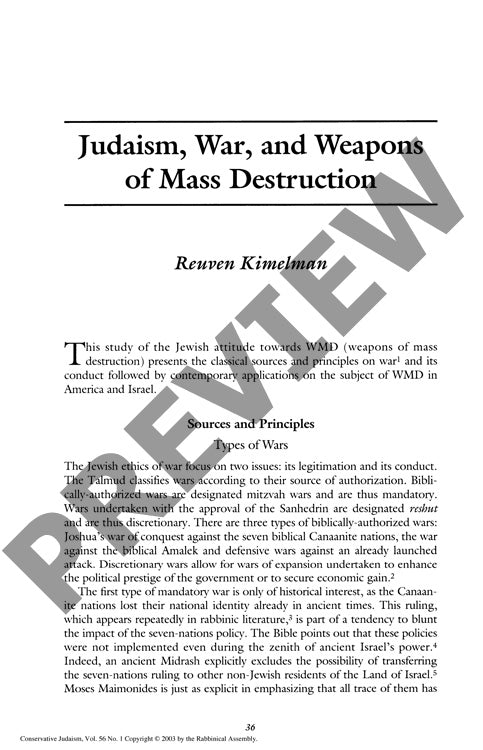Judaism War and Weapons of Mass Destruct
Couldn't load pickup availability
Jewish religious tradition establishes clear ethical boundaries around weapons of mass destruction - permitting their possession for deterrence while prohibiting their use and advocating eventual disarmament. Classical Jewish war ethics, rooted in Talmudic classifications of mandatory (mitzvah) versus discretionary (reshut) conflicts, provide the framework for analyzing modern WMD dilemmas. Through examination of traditional sources and contemporary rabbinic responses, distinct principles emerge: proportionality in warfare, prohibition of wanton destruction (bal tashchit), and protection of non-combatants - derived from biblical injunctions against destroying fruit trees during sieges. Contemporary Jewish authorities have adapted these principles to nuclear, biological, and chemical weapons, heavily influenced by Holocaust experiences that simultaneously justify defensive preparations while demanding civilian protection. Major Jewish organizations actively support nuclear freeze proposals and disarmament efforts while maintaining support for conventional defense capabilities. Israel's unique security situation adds complexity, with nuclear opacity policies enabling deterrent capacity without public acknowledgment. The analysis reveals a modern Jewish consensus that balances security needs with ethical imperatives: WMD possession is acceptable for deterrence, proliferation should be prevented, and universal disarmament remains the ultimate goal - contingent upon establishing effective international conflict resolution mechanisms.

More Information
-
Physical Description
-
Publication Information
Published 2003
ISBN
-
Publication Credits
Reuven Kimelman

